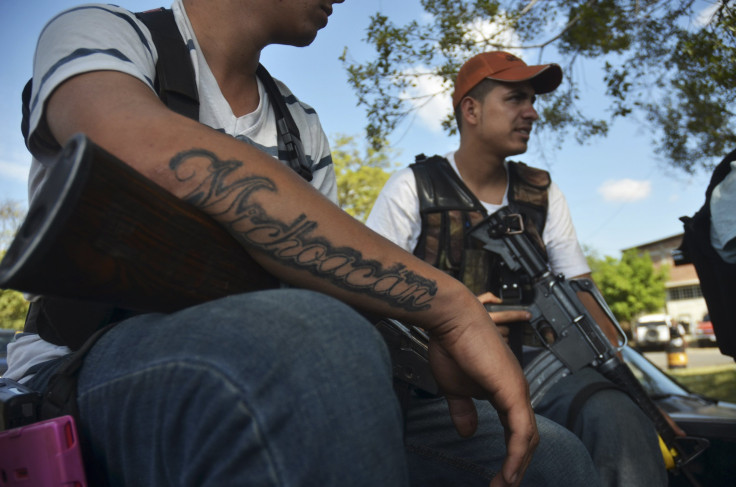Mexico Plans To Economically Suffocate Michoacán Cartels, Make Alliance With Vigilantes

MEXICO CITY -- Desperate times call for desperate measures: That must be the thinking of Alfredo Castillo Cervantes, the Mexican federal government's commissioner in Michoacán, as he tries to stop the chaos that has embroiled the western state. Civilians trying to protect their land from the criminal cartels that control the area, official forces attempting to calm the street war, distrust among them all -- the situation has reached unparalleled proportions.
Castillo does not call the civilian vigilantes criminals, like many in the Mexican political and media elite have been doing. In fact, the politician wants them as allies, as their help would be invaluable in the fight against the Templarios, the main crime cartel that operates in Michoacán, born in 2011 from the remnants of legendary drug-trafficking outfit La Familia.
Castillo said he believes that he can count on the “autodefensas,” as vigilantes call themselves. The vigilantes, informal security groups composed of and run by citizens, have been on an open war against the Templarios for the control of their land for almost a year. The situation escalated to unsustainable proportions at the end of 2013, prompting the intervention of the government.
The autodefensas did not welcome the government's entry into the fray, believing they would be ultimately treated, and tried, like the criminals they are trying to fend off. Castillo has taken it upon himself to gain their trust and enlist them in the official fight against organized crime.
The next part of the government's plan is to stop extortion, which is the main earner for the Templarios -- their drug trafficking, mainly in marijuana and cocaine, has been largely crushed by rival cartels operating in neighboring states. By ensuring the cooperation of local official and business owners, Castillo hopes to suffocate the gang’s finances and ensure that government funds, which have been ineffective in fighting crime and often and ended up in the criminals' hands, are put to good use.
President Enrique Peña Nieto announced last week that the government would be earmarking $3.4 billion for the state for education, health, and transportation.
The government’s strategy to stop the conflict is based on reasserting territorial control, which began by sending the air force and navy to the 27 counties of the state, with helicopters and ships. Next on the agenda is to actually capture the cartel members, and for that, vigilantes are invaluable with their knowledge of the ground and of who's who.
“The most important asset of the vigilantes is not their weapons but their wealth of information,” Castillo said. “That is what we are focusing our efforts on, providing them with safety in exchange of information.”
The commissioner also explained how the vigilantes need to turn into “rural guards,” an outdated security figure from the 19th century that might be brought back by the government. They would receive training and weapons licenses.
Castillo believes the nail in the coffin of the Templarios will come from choking off their source of income. That would be accomplished by revising all licenses and ownership of local businesses and industries, like mining, to make sure they are not in the traffickers' hands, as well as monitoring the exports from the biggest port, Lázaro Cárdenas.
“It is also our goal to create a safety environment that allows local mayors and businesses to not respond to extortion,” Castillo said. “With us around, criminals will have a lot harder time getting to them.”
The last item in the government's to-do list for Michoacán is to rebuild local institutions and civil society. The government sent Castillo 200 officials in charge of overseeing the recuperation of the area by administrating the funds provided by the government, and making sure the work, like the construction of a new hospital planned for the town of Apatzingán, actually gets done.
Success is far away, if it will come. Castillo, however, is optimistic about this Michoacán-specific approach. “I do not think this [type of crime-fighting strategy] is present in many areas of the country,” he said. “Problems cannot be solved with violence, and we haven’t had it here. That is invaluable.”
© Copyright IBTimes 2024. All rights reserved.





















